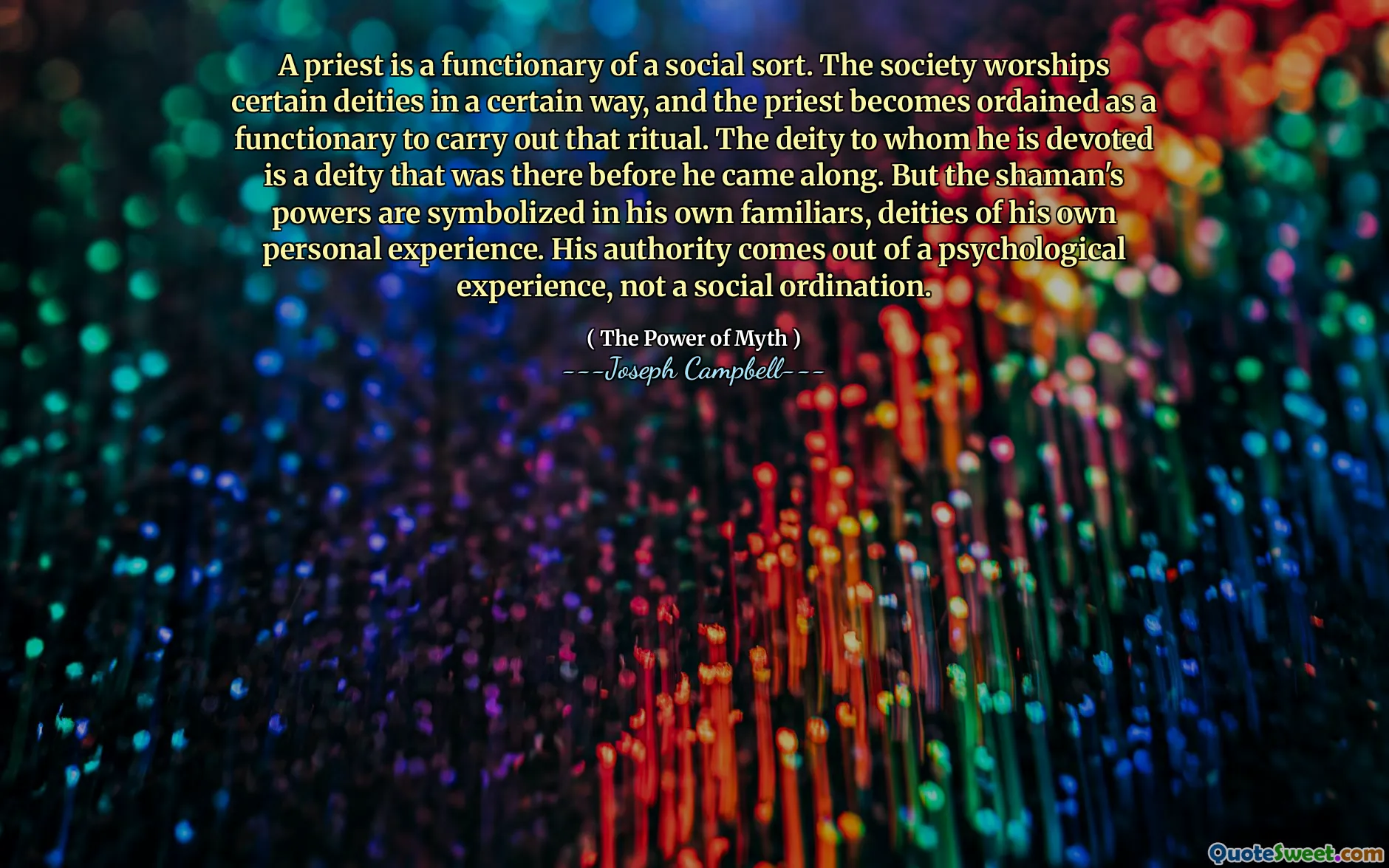
A priest is a functionary of a social sort. The society worships certain deities in a certain way, and the priest becomes ordained as a functionary to carry out that ritual. The deity to whom he is devoted is a deity that was there before he came along. But the shaman's powers are symbolized in his own familiars, deities of his own personal experience. His authority comes out of a psychological experience, not a social ordination.
This quote profoundly differentiates between two spiritual roles—the priest and the shaman—highlighting the source of their authority and their relationship with the divine. Priests are positioned within the framework of societal structures; their role emerges primarily from communal validation and formal ordination. They perform rituals dedicated to deities that exist within a shared cultural or religious context, emphasizing stability, tradition, and collective identity. On the other hand, shamans derive their spiritual power from personal psychological experiences, often involving deeply intimate encounters with their own 'familiars' or personalized deities. This reflects a more subjective, perhaps even existential approach to spirituality, where the authority of the shaman is internal and individual rather than externally imposed.
The distinction underscores important themes about the nature of spirituality and religion. While the priest represents the codified, institutionalized expression of faith, the shaman illustrates the experiential and transformative aspects of personal religious experience. It also invites reflection on the dynamics between communal order and individual exploration within spiritual life. The shaman's connection to divinity is fluid, evolving, and deeply intertwined with personal identity and psychological processes, contrasting with the enduring and communal presence of the priest’s deity.
This perspective encourages a broader appreciation of religious practices and challenges us to consider how spiritual authority can emerge not merely from social endorsement but from inner psychological journeys. Joseph Campbell’s insight invites us to recognize the diverse pathways to sacred experience and value both the societal rituals that bind communities and the personal encounters that define individual meaning.




